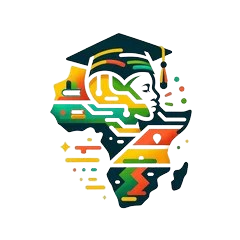Africa is engaged in a digital transformation that affects all sectors, including education. Faced with structural challenges such as the lack of school infrastructure, the shortage of qualified teachers, and difficulty accessing educational resources, digital technology presents a unique opportunity to democratize learning. E-learning platforms, virtual classrooms, artificial intelligence, and mobile tools are innovations that can transform education in Africa. However, despite these promising advances, numerous obstacles hinder the integration of digital technology into the continent's education systems. Between opportunities and challenges, what are the prospects for digital education in Africa?
The Promises of Digital Transformation in African Education
The integration of digital technologies into African education offers several major advantages. First, learning becomes more accessible thanks to e-learning platforms and online courses. Initiatives like the Virtual University of Senegal (UVS) enable thousands of students to access educational content remotely, thereby reducing geographical barriers.
Next, digital transformation fosters a more interactive and personalized pedagogy. Artificial intelligence and educational software allow learning paths to be adapted to the needs of each student. For example, applications like Eneza Education or Kolibri offer educational content even in offline mode, which is essential in regions where internet access is limited.
Finally, digital technology encourages continuous teacher training. Thanks to MOOCs (Massive Open Online Courses) and platforms like Coursera or EdX, African teachers can train remotely and acquire new skills to improve the quality of teaching.
The Challenges and Limitations of Digital Education in Africa
Despite these advances, the digital transformation of African education faces several major obstacles. The lack of infrastructure and connectivity is one of the biggest challenges. In several rural areas, access to the internet remains limited or nonexistent, preventing the effective use of digital tools. Moreover, computing equipment (computers, tablets) is often too expensive for many families and schools.
Another challenge is the lack of teacher training. Adopting digital technologies requires adequate training, but in many African countries, teachers do not always have the skills necessary to fully exploit digital tools in their pedagogy. According to a UNESCO study, only 20 to 30% of teachers in sub-Saharan Africa have received training on the use of digital tools in the classroom.
Furthermore, the digital divide exacerbates educational inequalities. While urban schools have better technological infrastructure, rural schools remain disconnected, deepening the gap between students based on their location and socio-economic background.
Finally, cultural and institutional acceptance of digital technology in education presents another challenge. Some African governments are slow to implement clear policies for integrating digital technology into official curriculums. Additionally, some communities still perceive digital tools as a substitute for traditional methods rather than as a complement, slowing their adoption.
What Solutions for Effective and Inclusive Digital Education?
For the digital transformation of education to be truly beneficial in Africa, appropriate public policies must be implemented. It is essential for governments to invest in improving digital infrastructure, particularly by expanding internet access in rural areas and reducing the cost of technological equipment.
Next, teacher training should be a priority. Capacity-building programs must be introduced to allow educators to better use digital tools in their classes. Initiatives like the RELI Project (Regional Education Learning Initiative) in East Africa show that appropriate training can significantly improve the quality of digital education.
Furthermore, collaboration between the public and private sectors is essential. Telecommunication companies and African edtech startups must play a key role in developing solutions adapted to local realities, such as mobile learning for access to educational content.
Finally, it is crucial to raise awareness among communities about the importance of digital technology in education. Parents and students must be encouraged to view technology as a learning lever rather than a distraction. Supporting families and teachers in this digital transition will ensure better acceptance of new teaching methods.
Conclusion
Digital education in Africa is an ongoing revolution, offering innovative solutions to address the challenges of the educational system. Through online platforms, mobile tools, and new technologies, learning becomes more accessible and interactive. However, for this transformation to be truly beneficial, it is essential to strengthen digital infrastructures, train teachers, and reduce inequalities in access to digital tools. With an inclusive approach and appropriate policies, digital transformation can truly change the future of education in Africa, allowing millions of students to benefit from quality education, regardless of their location. The stakes are high, but if these challenges are overcome, Africa could become a model for educational innovation.
Bibliography and References
ADEA. (2020). Digitalisation of technical and vocational education and training in Africa.
UNESCO. (2024). Transforming Education in Africa through ICT.
African Union. (2022). Digital Education Strategy.
UNESCO. (2024). Transforming Education in Africa through ICT.
Resilient Digital Africa. (2024). The State of Digital Education in Africa.


.jpg)